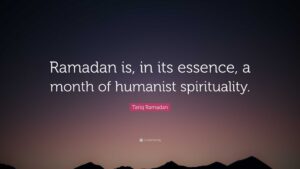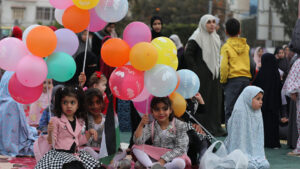In the sacred month of Ramadan, Muslims around the world embark on a profound spiritual journey that transcends the physical realm. Ramadan is not merely about abstaining from food and drink during daylight hours; it is a time of spiritual reflection, self-discipline, and increased devotion to Allah. Through fasting, prayer, and acts of charity, Ramadan offers believers an opportunity to enhance their spiritual well-being and draw closer to the Divine.
The Essence of Ramadan
Ramadan holds immense significance in Islam as the month during which the Quran was revealed to the Prophet Muhammad (peace be upon him). It is a time of heightened spirituality, marked by increased acts of worship, reflection, and self-restraint. Fasting during Ramadan is one of the Five Pillars of Islam and serves as a means of purifying the soul, seeking forgiveness, and gaining closeness to Allah.

Fasting and Spiritual Cleansing
The act of fasting during Ramadan is not merely about abstaining from food and drink; it is a form of spiritual cleansing and purification. By refraining from physical indulgences, Muslims strive to detach themselves from worldly distractions and focus their attention on spiritual growth and self-improvement. Fasting teaches self-discipline, patience, and empathy for those less fortunate, fostering a sense of compassion and humility.
Increased Acts of Worship
During Ramadan, Muslims engage in a variety of acts of worship to enhance their spiritual well-being. This includes performing the five daily prayers, reciting the Quran, engaging in supplication (dua), and participating in voluntary acts of worship such as Taraweeh prayers and Tahajjud (night prayers). The collective atmosphere of devotion and piety that permeates the month of Ramadan serves to elevate the spirits of believers and draw them closer to Allah.

Reflection and Self-Examination
Ramadan provides an opportune moment for introspection and self-examination, as Muslims take stock of their lives, assess their spiritual progress, and seek forgiveness for past transgressions. The long hours of fasting offer moments of solitude and contemplation, allowing individuals to reflect on their relationship with Allah, their actions, and their intentions. This process of self-reflection fosters a sense of humility, gratitude, and spiritual awareness, paving the way for personal growth and transformation.
Community and Solidarity
One of the most distinctive aspects of Ramadan is the sense of community and solidarity that it fosters among believers. Muslims come together to break their fasts at Iftar gatherings, share meals with family, friends, and neighbors, and engage in acts of charity and compassion towards those in need. This communal spirit of generosity, kindness, and empathy strengthens bonds of brotherhood and sisterhood, reinforcing the importance of unity and compassion in Islam.

The Importance of Charity
Charity, or Zakat, holds special significance during Ramadan. Muslims are encouraged to give generously to those in need, both within their community and beyond. The act of giving not only helps alleviate the suffering of others but also purifies the soul and earns blessings from Allah. Ramadan serves as a reminder of the importance of compassion, generosity, and empathy towards the less fortunate, reinforcing the principles of social justice and equality in Islam.
The Power of Prayer
Prayer plays a central role in the spiritual life of Muslims during Ramadan. In addition to the obligatory five daily prayers, believers are encouraged to engage in additional acts of worship, such as Taraweeh prayers and Tahajjud (night prayers). These extra prayers offer an opportunity for deeper reflection, connection, and spiritual rejuvenation. The late-night prayers, in particular, are believed to be a time when Allah is especially close to His worshippers, offering them solace, guidance, and blessings.
The Joy of Eid-ul-Fitr
The culmination of Ramadan is marked by the joyous celebration of Eid-ul-Fitr, the festival of breaking the fast. Muslims gather with family and friends to offer prayers, exchange gifts, and share festive meals. It is a time of gratitude, joy, and celebration, as believers express their thanks to Allah for the blessings of Ramadan and the opportunity to draw closer to Him. Eid-ul-Fitr is also a time for charity, as Muslims are encouraged to give Zakat-ul-Fitr to those in need, ensuring that everyone can partake in the festivities.

Tips for Healthy Eating During Ramadan Fasting
